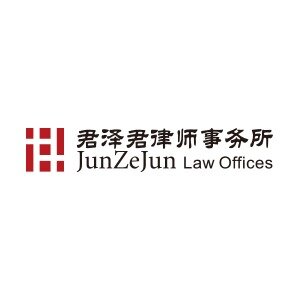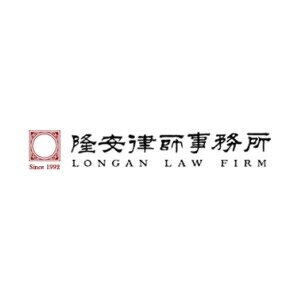Best Mining Law Lawyers in Beijing
Share your needs with us, get contacted by law firms.
Free. Takes 2 min.
List of the best lawyers in Beijing, China
About Mining Law in Beijing, China
Mining Law in Beijing, China refers to the legal framework that governs the exploration, extraction, processing, and management of mineral resources within Beijing’s jurisdiction. Although mining activities in Beijing are less intensive compared to other regions due to urbanization, mineral resource management remains critical. The regulatory structure is based on national legislation, such as the Mineral Resources Law of the People's Republic of China, with local regulations and administrative measures tailored to the unique requirements of the Beijing area. These laws ensure sustainable resource utilization, environmental protection, and the lawful conduct of mining activities.
Why You May Need a Lawyer
Mining activities involve complex legal and regulatory requirements that can be difficult to navigate without professional help. Here are some common situations where consulting a Mining Law lawyer in Beijing may be necessary:
- Obtaining prospecting and mining licenses or permits
- Negotiating joint venture or investment agreements for mining projects
- Complying with environmental protection and land reclamation obligations
- Addressing land use rights and resolving disputes with landowners or local communities
- Dealing with regulatory inspections, administrative penalties, or government enforcement actions
- Transferring or leasing mining rights
- Resolving contract disputes with suppliers, contractors, or partners
- Handling violations, non-compliance, or criminal liability related to mining activities
- Navigating foreign investment restrictions or cross-border transactions in mining
- Accessing remedies for expropriation or government compensation related to mining
Local Laws Overview
The basic legal foundation for mining in Beijing is set by the Mineral Resources Law, supplemented by local regulations and administrative rules issued by the Beijing Municipal People’s Government and relevant departments. Key aspects of local Mining Law include:
- Licensing System: Before starting exploration or mining, businesses must obtain licenses issued by relevant authorities. The process is strictly regulated to ensure only qualified entities operate in the sector.
- Environmental Protection: Mining projects must comply with China’s stringent environmental laws, including environmental impact assessments, restoration plans, and ongoing supervision from ecological departments.
- Land Use Policies: Mineral resources are generally state-owned, and mining operations may be subject to the coordination of mining rights with land ownership or use rights.
- Health and Safety: There are strict standards for worker safety, equipment, and emergency preparedness to minimize mining accidents.
- Foreign Investment: Special rules apply to foreign investors, including additional approvals and possible restrictions in sensitive areas.
- Supervision and Enforcement: Local authorities regularly inspect mining sites, and violations can result in fines, suspension of licenses, or litigation.
Frequently Asked Questions
What is required to obtain a mining license in Beijing?
To obtain a mining license, you must submit an application to the relevant natural resources department, provide qualification and technical documentation, complete an environmental impact assessment, and fulfill other requirements specified by local regulations.
Are there restrictions on foreign companies engaging in mining in Beijing?
Yes, foreign investment in the mining sector is regulated and often subject to additional scrutiny or approval by government authorities, especially if sensitive minerals or strategic resources are involved.
How are mineral resources owned in Beijing?
All mineral resources in Beijing, as in the rest of China, are owned by the state. Individuals and companies only have the right to explore or mine these resources after acquiring the necessary licenses.
What are the key environmental obligations for mining operations?
Mining operations must conduct environmental impact assessments, undertake land reclamation after mining, implement pollution control measures, and regularly report to regulatory authorities.
What penalties can result from illegal mining?
Penalties may include fines, confiscation of equipment or products, suspension or revocation of licenses, and, in severe cases, criminal charges.
How are land use conflicts resolved in mining activities?
Disputes over land use are typically resolved through negotiation but may also be addressed by local land and resource management departments or through judicial proceedings if necessary.
What documents are needed to transfer mining rights?
Parties must submit the transfer agreement, approval from regulatory authorities, proof of compliance with environmental obligations, and other supporting documents as required.
Do mining activities need to meet occupational health and safety standards?
Yes, strict health and safety standards apply to all mining activities, and regular inspections are conducted to ensure compliance and protect workers.
What should I do if faced with administrative penalties for mining activities?
You should consult with a lawyer immediately to review the penalty notice, understand your rights, and determine the best response, including filing appeals or corrections as necessary.
Can small-scale mining operations be conducted legally in Beijing?
Small-scale mining is regulated and generally requires the same licensing and compliance as larger operations, with possible variations in scale-related requirements.
Additional Resources
For more information or official guidance regarding Mining Law in Beijing, consider reaching out to the following organizations or resources:
- Beijing Municipal Bureau of Planning and Natural Resources
- Ministry of Natural Resources of the People’s Republic of China
- Beijing Municipal Bureau of Ecology and Environment
- China Mining Association
- Legal Aid Centers in Beijing for assistance with administrative and civil disputes
Next Steps
If you believe you need legal assistance concerning Mining Law in Beijing, consider taking the following steps:
- Gather all relevant documents and information related to your mining activities, including licenses, permits, contracts, and correspondence with authorities.
- Consult with a qualified lawyer who specializes in mining or natural resources law in Beijing. An expert can assess your situation, explain your rights and obligations, and outline possible solutions.
- If facing regulatory issues or disputes, seek legal advice before responding to government investigations or enforcement actions to protect your interests.
- Stay informed about changes to local laws and regulations by subscribing to updates from relevant government agencies or professional associations.
- Always ensure compliance with licensing, environmental, and safety requirements to minimize legal risks and maintain good standing with regulatory authorities.
Taking these steps will help you navigate the legal complexities of mining operations in Beijing with greater confidence and ensure your activities remain lawful and profitable.
Lawzana helps you find the best lawyers and law firms in Beijing through a curated and pre-screened list of qualified legal professionals. Our platform offers rankings and detailed profiles of attorneys and law firms, allowing you to compare based on practice areas, including Mining Law, experience, and client feedback.
Each profile includes a description of the firm's areas of practice, client reviews, team members and partners, year of establishment, spoken languages, office locations, contact information, social media presence, and any published articles or resources. Most firms on our platform speak English and are experienced in both local and international legal matters.
Get a quote from top-rated law firms in Beijing, China — quickly, securely, and without unnecessary hassle.
Disclaimer:
The information provided on this page is for general informational purposes only and does not constitute legal advice. While we strive to ensure the accuracy and relevance of the content, legal information may change over time, and interpretations of the law can vary. You should always consult with a qualified legal professional for advice specific to your situation.
We disclaim all liability for actions taken or not taken based on the content of this page. If you believe any information is incorrect or outdated, please contact us, and we will review and update it where appropriate.

















